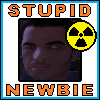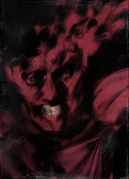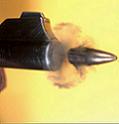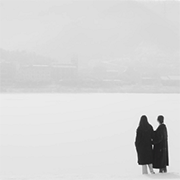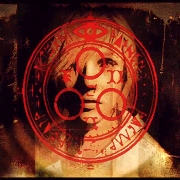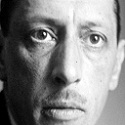|
I'm also interested in stuff about the warlord era and civil war.
|
|
|
|

|
| # ? May 16, 2024 00:42 |
|
InequalityGodzilla posted:Also I guess while I'm here I should give my own recommendation of something I finished recently: By The Sword by Richard Cohen. It's a (mostly) complete history of swordsmanship and dueling/fencing in particular, mostly focusing on the western world but occasionally covering the east, written by a retired olympic fencer. For a guy who as far as I know didn't really have much writing experience when he first wrote it the book is extremely readable and never even approaches any sort of dry, overly academic tone. It's obvious that Cohen is hugely passionate about the subject matter and that's really reflected in the writing. Reading it kind of felt like sitting down in front of an old expert to listen to them tell you all they know, if that makes any sense. If you're looking for an entertaining and educational look at sword fighting I highly recommend it. Thanks for this recommendation. I've been doing a bunch of revision work on a tabletop RPG that uses fencing/dueling quite a bit, so this sounds like good inspiration and supplemental reading.
|
|
|
|
HighClassSwankyTime posted:Cambridge History of China if you have some disposable income drat, not that much sadly.
|
|
|
|
Can anyone recommend good books about 1. The Bosnian War ó particularly the massacres that occurred 2. Genocide in general ó books that detail the genocides throughout history, and I'm especially interested in books that try to examine why they keep happening
|
|
|
|
I haven't read it yet, but I do plan on one day checking out Worse Than War: Genocide, Eliminationism, and the Ongoing Assault on Humanity from my local library. Not much help, I know.
|
|
|
|
Continuing the theme, does anyone know of a good intellectual history of China and specifically pre-modern China? I'm just finishing up Karen Armstrong's A History of God and I'd love something similar in an East Asian context. I'm not averse to very academic work, but I'd like something that's well written.
|
|
|
|
I just finished re-reading King Leopold's Ghost and I kind of
|
|
|
|
Railing Kill posted:I just finished re-reading King Leopold's Ghost and I kind of
|
|
|
|
Railing Kill posted:I just finished re-reading King Leopold's Ghost and I kind of 
|
|
|
|
Railing Kill posted:I just finished re-reading King Leopold's Ghost and I kind of The Flashman novels are fun and educational romps through the Victorian world, you might want to give them a go.
|
|
|
|
Railing Kill posted:I just finished re-reading King Leopold's Ghost and I kind of Operation Mincemeat: How a Dead Man and a Bizarre Plan Fooled the Nazis and Assured an Allied Victory by Ben Macintyre. Empire: What Ruling the World Did to the British by Jeremy Paxman. Not necessarily funny or lighthearted, but I read Janet Browne's two-volume bio of Charles Darwin last year, and if you're ever in the mood for a story about a normal, pleasant guy who changes the worldóand nobody diesóyou might want to look into these. I just finished a book about the Italian front in world war one, and might revisit Darwin bios just to clean my palate.
|
|
|
|
Finished The Sleepwalkers: How Europe Went to War in 1914 a few days ago and while I did enjoy it a lot, I felt like Clark was pretty biased towards the Germans (in absolving them, I mean). edit: Another thing that I didn't feel was explained thoroughly enough was Austria's decision to use the ultimatum as a pretext to a was as opposed to an instrument of diplomacy. I understand that the hawks were in the ascendant and that with the loss of Franz Ferdinand they lost a strong moderating influence, but the decision to pursue war felt kind of sudden. I guess I probably missed something while reading. kalthir fucked around with this message at 12:20 on Jun 19, 2014 |
|
|
|
Lead Psychiatry posted:I haven't read it yet, but I do plan on one day checking out Worse Than War: Genocide, Eliminationism, and the Ongoing Assault on Humanity from my local library. The author of Hitler's Willing Executioners would be the last person I would regard as an authority on genocide.
|
|
|
|
Good thing no one claimed he was an authority, then. The second line should've been a big clue that I'm already aware it's not a great suggestion. But eh, no one else was willing to help the person asking for books on the matter.
|
|
|
|
Shimrra Jamaane posted:The author of Hitler's Willing Executioners would be the last person I would regard as an authority on genocide. I wouldn't even regard Goldhagen as a historian.
|
|
|
|
Shimrra Jamaane posted:The author of Hitler's Willing Executioners would be the last person I would regard as an authority on genocide. Can you elaborate? Is the guy a Nazi apologist or just a bad researcher?
|
|
|
|
He's a poo poo researcher, puts in way too much opinion (Highclassswankytime is well justified in saying he's not a historian), and has been called out on making claims that don't fit the evidence he uses. Also I should probably point out that my using his book as a suggestion to try and help another is evidence that I could use suggestions myself. But sadly, no others were given.
|
|
|
|
I always wanted to read Hitler's Willing Executioners, but I've seen this claim that he's a bad historian repeated too often. It's rarely qualified more than above, and I think it's a drat shame given 1. I would like to read a book on the subject 2. I have no clue which methods a good historian uses, that I might distuingish in a text?
rasser fucked around with this message at 20:33 on Jun 20, 2014 |
|
|
|
According to the top Amazon review, his thesis for the German killing of Jews was monocausal ("eliminationist anti-semitism"). Any time a historian resorts to simple explanations like that, they've probably chosen their evidence very selectively.
|
|
|
|
kalthir posted:Finished The Sleepwalkers: How Europe Went to War in 1914 a few days ago and while I did enjoy it a lot, I felt like Clark was pretty biased towards the Germans (in absolving them, I mean).
|
|
|
|
I would like a recommendation for a book about Sengoku Japan. I want to know more about the period beyond shouty animes and videogames.
|
|
|
|
Hey, I'm looking for a good book that covers any sort of African medieval history, preferably a more general sort. I realize that this is an exceedingly general way of looking into African history, but any book that covers one of the empires, peoples, eras, etc. from that time period (750ish CE to 1500 CE) would be very much appreciated.
|
|
|
|
A Dapper Walrus posted:Hey, I'm looking for a good book that covers any sort of African medieval history, preferably a more general sort. I realize that this is an exceedingly general way of looking into African history, but any book that covers one of the empires, peoples, eras, etc. from that time period (750ish CE to 1500 CE) would be very much appreciated. Try exchanging African with European in the above, and see how meaningless it gets. I would help you if I could, though, but I'm just as ignorant.
|
|
|
|
There are many overviews of Europe in the Middle Ages and they're not (all) meaningless.
|
|
|
|
Kuiperdolin posted:There are many overviews of Europe in the Middle Ages and they're not (all) meaningless. Agreed. But wanting to know about Europe from reading about "one of the empires, peoples, eras, etc. from that time period (750ish CE to 1500 CE)" brings too many different subjects up. Are we talking vikings? Charlemagne? Byzantium? The popes of Avignon? The reconquista? Etc. etc. All exciting subjects, but not all easy to put in one bucket - although you could learn a good deal about Europe from these and countless others.
|
|
|
|
rasser posted:Agreed. But wanting to know about Europe from reading about "one of the empires, peoples, eras, etc. from that time period (750ish CE to 1500 CE)" brings too many different subjects up. Are we talking vikings? Charlemagne? Byzantium? The popes of Avignon? The reconquista? Etc. etc. Well I suppose to narrow it down a bit, how about some books on the civilizations of Western Africa (like the Songhai, Mali, an earlier power, or one of the major peoples from the area) or on Ethiopia around the same time? I'm sorry for the general query earlier, it's just that I really had no idea where to start.
|
|
|
|
A Dapper Walrus posted:Well I suppose to narrow it down a bit, how about some books on the civilizations of Western Africa (like the Songhai, Mali, an earlier power, or one of the major peoples from the area) or on Ethiopia around the same time? I'm sorry for the general query earlier, it's just that I really had no idea where to start. No need to be sorry. As I said, if I knew more I'd help. And I wasn't exactly giving constructive advice. Have you considered browsing wikipedia for some of the subjects you have in mind, to see where you'd prefer to start? I thought about doing this for the same question once.
|
|
|
|
I've been reading Beyond the Blue Horizon by Brian Fagan, about humanity's earliest seafarers, and it waffles between being fascinating and tedious (mainly from repeated supposition and theories about different early ocean-going societies that lack detail) but I appreciate Fagan getting poetic:quote:As the darkness lightens and the stars vanish, the weathered navigator leans over, eyes shut, feeling the movement of the waves through his swinging testicles. Fagan intertwines personal sailing experiences into the book and I wonder if that's where he got his inspiration.
|
|
|
|
I read this book for an African history class (Antiquity to ~1870) and thought it was pretty good, though I'm far from an expert to give any sort of breakdown on the quality of it's historical analysis. It was enjoyable, and readable, enough for my purposes though.
|
|
|
|
I'm also interested in reading some good books about Japanese history. I'm particularly interested in books that cover the Sengoku period, but books covering other time periods before WWII would also be fine.
|
|
|
|
In the hopes of restarting the thread, here are some things I've read lately and a request for recommendations: Islamic Gunpowder Empires- Very interesting, compares and contrasts the history of the Ottoman Safavid, and Mughal empires during the 15th-17th century Gunpowder and Galleys- I believe this was recommended earlier in the thread, also very good and presents a very cognizant analysis of 16th century galley warfare, led to my girlfriend believing that all I read about is old wooden ships, which is hardly true-I also like old metal ships as well. The Thirty Years War (C.V. Wedgewood)- A product of its times (1930ís) in terms of its style and politics, but remains a great narrative history and reads more easily than Peter Wilsonís Europeís Tragedy, which is still a good book. Iím looking forward to tracking down more of her books, especially the one on William the Silent. The Ottoman Age of Exploration-Advances the thesis that the spread of Ottoman influence in the Indian Ocean in many ways paralleled that of the Portuguese during the 16th century, since the Ottomans were just as new to the area as the Europeans, shared religion or no. The conclusion was a bit weak. Global Crisis- The best (only?) book on global climate change in the 17th century and how badly things went pretty much everywhere-IIRC, only the Mughals handled the crisis decently, engaging in charity and public works programs rather than wasting all of their resources on nonstop war. Most of Geoffery Parkerís books are pretty good, and this one is no exception. A Distant Mirror-Iím a big fan, although it drags a bit in a few places and Iím not sure how up to date it is in terms of its scholarship. Very readable. The Deluge: The Great War and the Remaking of Global Order 1916-1931: As I was a big fan of Toozeís The Wages of Destruction, I was really looking forward to this book. In it, Tooze advances the thesis that Woodrow Wilson and, to a lesser extent, his successors were attempting to exert a form of global financial hegemony during the latter half of WW1 as the Entente became reliant on American loans. I canít help but feel that the author bit off more than he could chew-even 500 pages isnít enough space to cover global economic and political development over such a tumultuous 15 year time period, and he often makes assertions that he doesnít have enough time or space to fully explore or explain-perhaps he should have focused more on the American-European relationship and left Asia for a follow-on work. Tooze is at his best when discussing socio-political events, but makes some a few military history errors-he refers to the Imperial German Navy as the Kriegsmarine, a name it wouldnít adopt until the coming of the Third Reich, and classifies the Japanese battleship Mutsu as a cruiser-the later is important because of the Mutsuís role as a symbol of national pride as ship partially paid for by the donations of school kids. I still highly recommend reading it. I was wondering if anyone had any additional history/military history books regarding the early modern and Napoleonic periods (Europe or otherwise)? My WW2 backlog is quite healthy, but Iíve developed a keen interest in older stuff over the past few years. I donít mind reading academic works, but I only have a BA in history so anything too technical might be over my head. Since Iím back in school, I have access to a pretty deep pool of library books. I also recently re-read Shattered Sword, which I heartily recommend to everyone ever, and A Bright Shining Lie, which I think might just be my favorite book ever.
|
|
|
|
If you're interested in the Napoleonic Wars, Russia Against Napoleon by Dominic Lieven is very good.
|
|
|
|
I'll chime in with a question about David Fromkin's "A Peace to End All Peace". I tried to read it to brush up on my mid-east history and I thought it would be a good look at the time. It was interesting for a time, but towards the middle-end of the book, it gets bogged down in details of how border lines were drawn and I honestly got really confused and bored. I had a hard time keeping track of the people and the poo poo. Given that I've put this book down for a month, should I pick it back up and power through the last quarter?
|
|
|
|
Stolennosferatu posted:I'll chime in with a question about David Fromkin's "A Peace to End All Peace". I tried to read it to brush up on my mid-east history and I thought it would be a good look at the time. It was interesting for a time, but towards the middle-end of the book, it gets bogged down in details of how border lines were drawn and I honestly got really confused and bored. I had a hard time keeping track of the people and the poo poo. No. Most of the 2nd half of the book is filled with minute details of treaties, agreements, meetings, memoranda, who said what when, and so forth. If you're looking for a review, re-read the first half or so, which is excellent, and quite relevant plenty of stuff today.
|
|
|
|
I just finished John Gaddis' The Cold War: A New History . It was pretty good, but it seemed a bit too introductory. I'd like to read other Cold War histories that have more to do with espionage, the arms race, and CIA involvement in covert coups. Any suggestions?
|
|
|
|
MeatwadIsGod posted:I just finished John Gaddis' The Cold War: A New History . It was pretty good, but it seemed a bit too introductory. I'd like to read other Cold War histories that have more to do with espionage, the arms race, and CIA involvement in covert coups. Any suggestions? How about the CIA's involvement in the drug trade during and post cold war? Politics of Heroin by Alfred McCoy is a good read.
|
|
|
|
I just finished Legacy of Ashes: The History of the CIA. It surprised me that CIA's ops seem to be a coin flip or worse odds, and that the agency is like a snowball going down a mountain and can't course correct to fix its problems ever since its inception.
|
|
|
|
Anyone got any reccomendations for books about the Ottoman Empire?
|
|
|
|
Abu Dave posted:Anyone got any reccomendations for books about the Ottoman Empire? I've always liked Lord Kinross's The Ottoman Centuries as an overview of the entire history of the empire, but it's more because it's accessible. It's older so it won't represent the newest scholarship or anything.
|
|
|
|

|
| # ? May 16, 2024 00:42 |
|
May Jozy score 5 goals for you in dedication of your help vyelkin.
|
|
|



